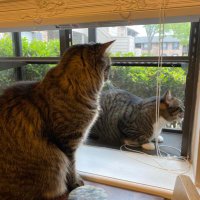
Hot take for Friday: All courseware and course documentation developed by faculty at public universities -- syllabi, exams, software, all of it -- should be required to be open-sourced and published under a Creative Commons CC-BY-SA license. #HigherEducation








Chad Orzel We've got 17 case studies in the Grading For Growth book of profs who make this work in their classes, in different disciplines, class sizes, and instruction modalities. Takes creativity some times but they make it work. routledge.com/Grading-for-Gr…

Robert Talbert I’ve come to believe one of the key issues to address is whether the school system our students came from before they get to us is transactional or transformative.
If it was transactional, they’re used to thinking in terms of time v. effort v. expected result.



Robert Talbert Saving time? Sometimes. Poor time mgmt? Sometimes that also. But when I see what students turn in when they cheat, when or when they procrastinate then cheat, I also see confusion, anxiety, fear. They don’t know what to do, fear asking, and worry about the consequences /


Tyler Austin Harper Openness goes a long way here. If orgs like NPR or public universities make it easier for the general public to look in and see how things are being done and decisions made, it helps with both the trust building and the self-policing. We in public higher ed are not good at this.

Robert Talbert This is true, but also has to do with the LMSing of learning. Students are accustomed to treating their learning as tasks to be checked off in the LMS, not just from our course but all classes. We should reverse audit what it looks like from a student taking 16-18 hrs.

Robert Talbert we did alternative grading in probability course for 300 CS students. Received evaluations, positive in general. But they ask, why these letters, why not just add points like everyone else? Do you have this experience? How to give a student-centric answer?

my secret identity I mean no disrespect to teachers when I say, I think we all know what the answer to that question is in the vast majority of cases.
